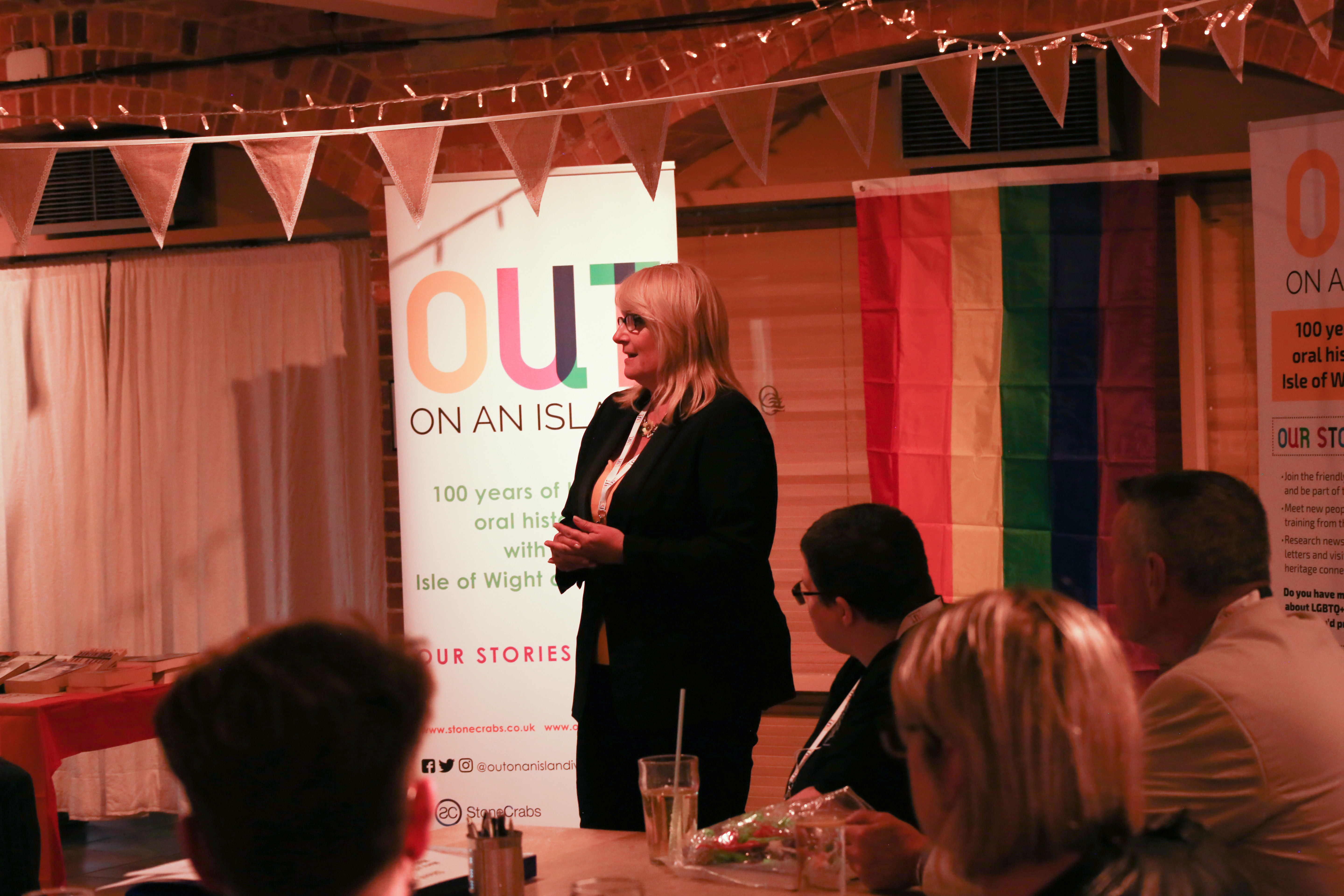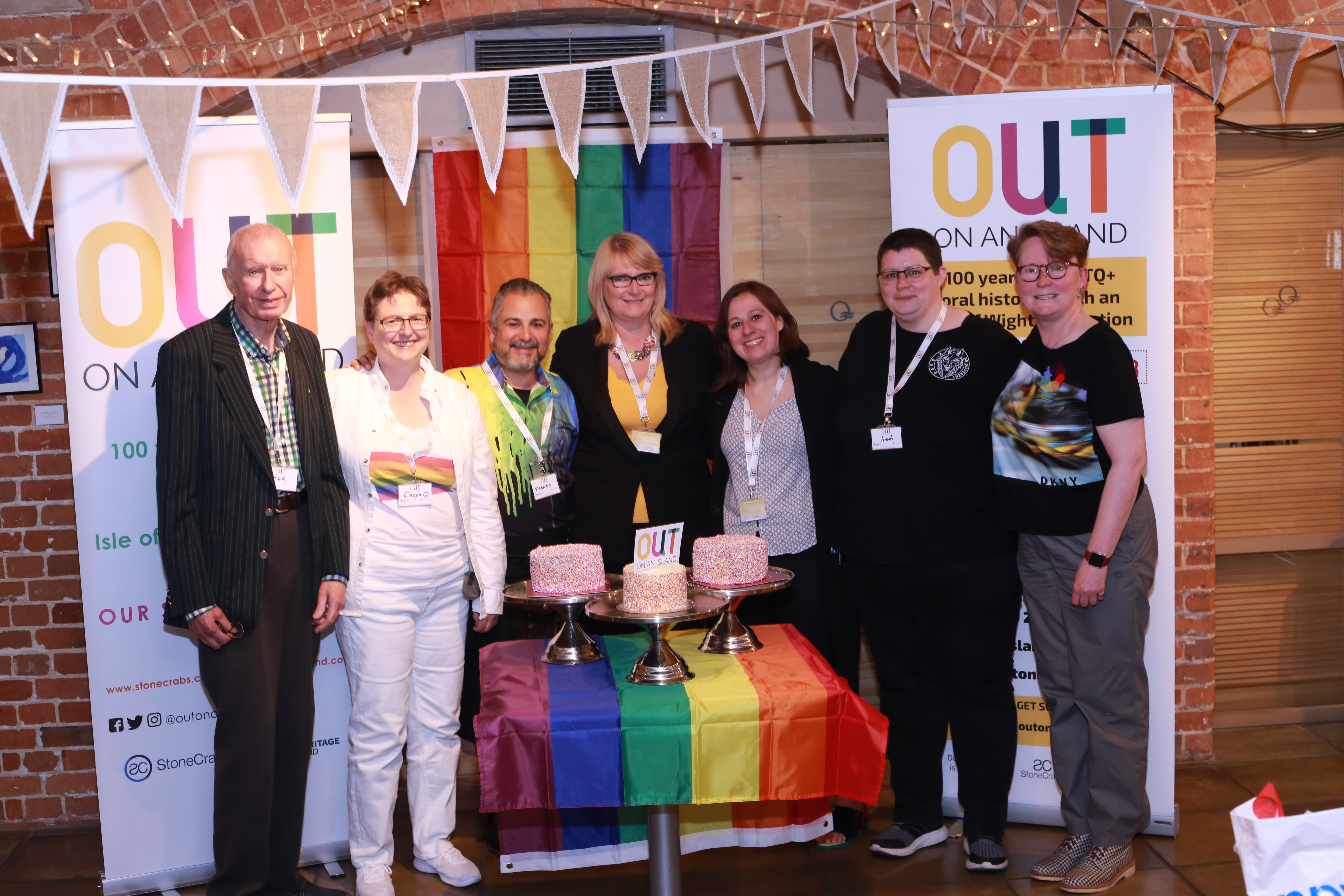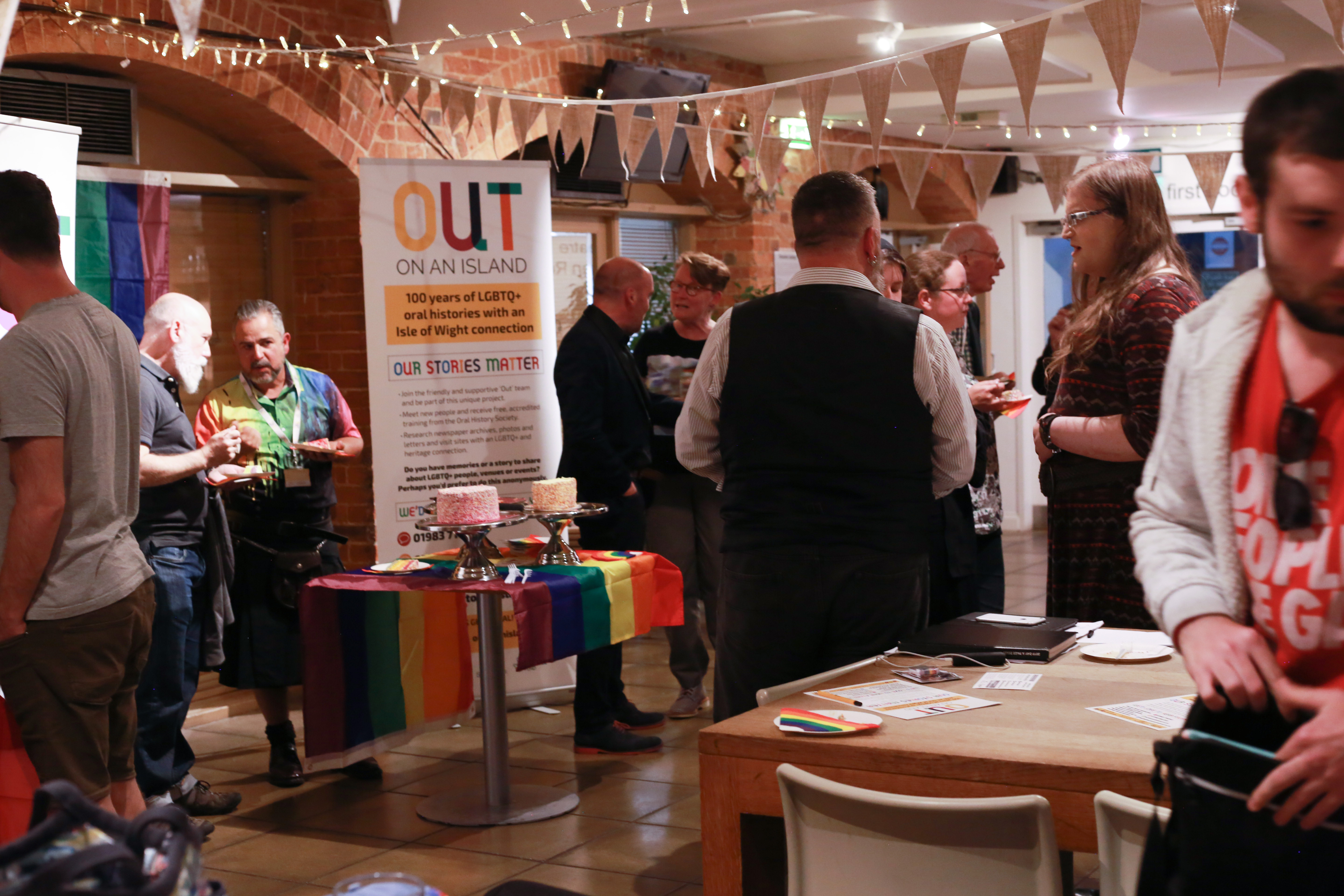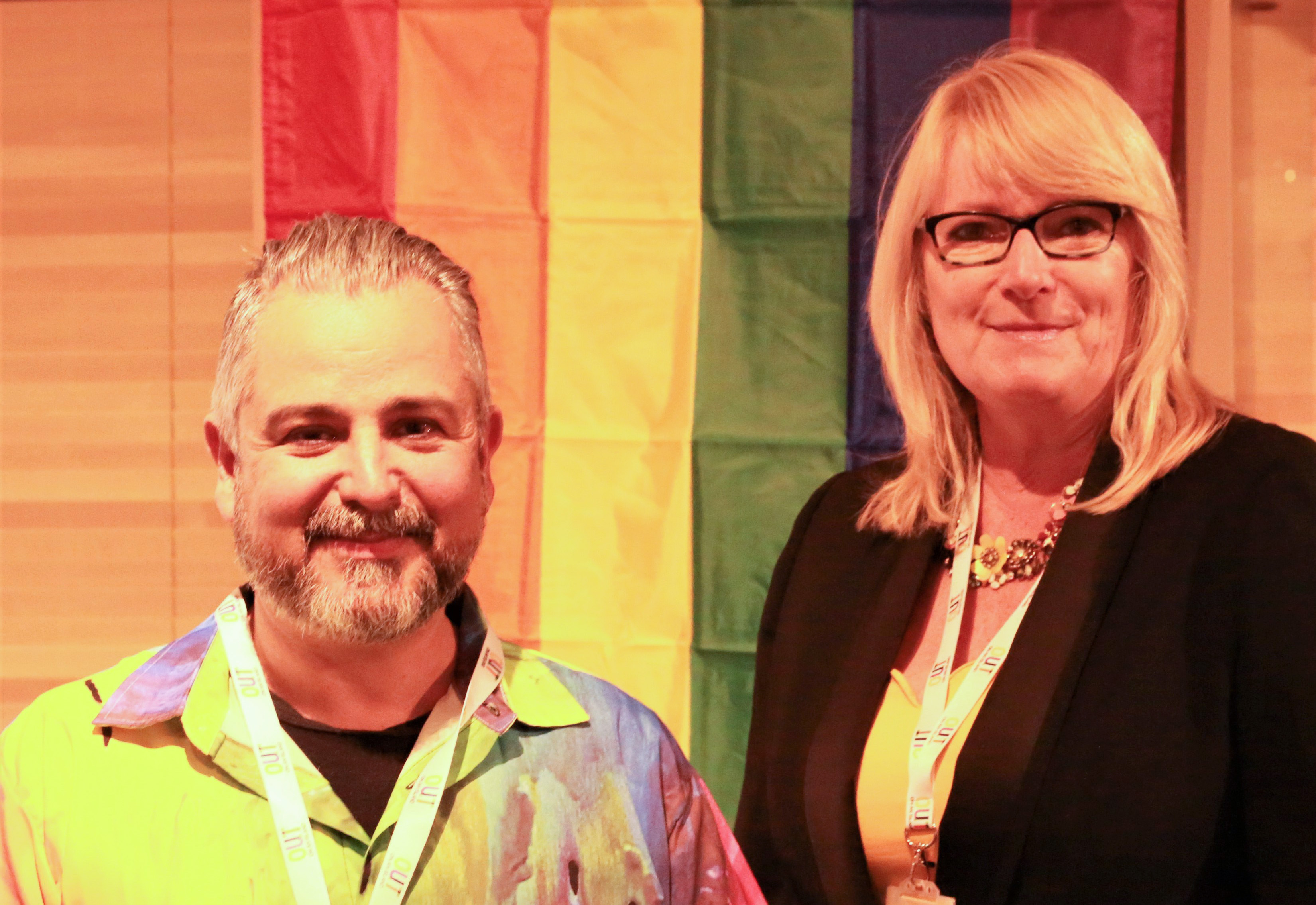100 years of LGBTQ+ Heritage on the Isle of Wight
StoneCrabs Heritage project ‘Out On An Island – 100 years of LGBTQ+ Oral Histories on the Isle of Wight’ is a unique project highlighting the personal stories and memories of LGBTQ+ individuals. We are keen to hear from volunteers and community groups such as Island heritage and historical societies to get involved sharing stories, documents and artefacts to build this unique project.
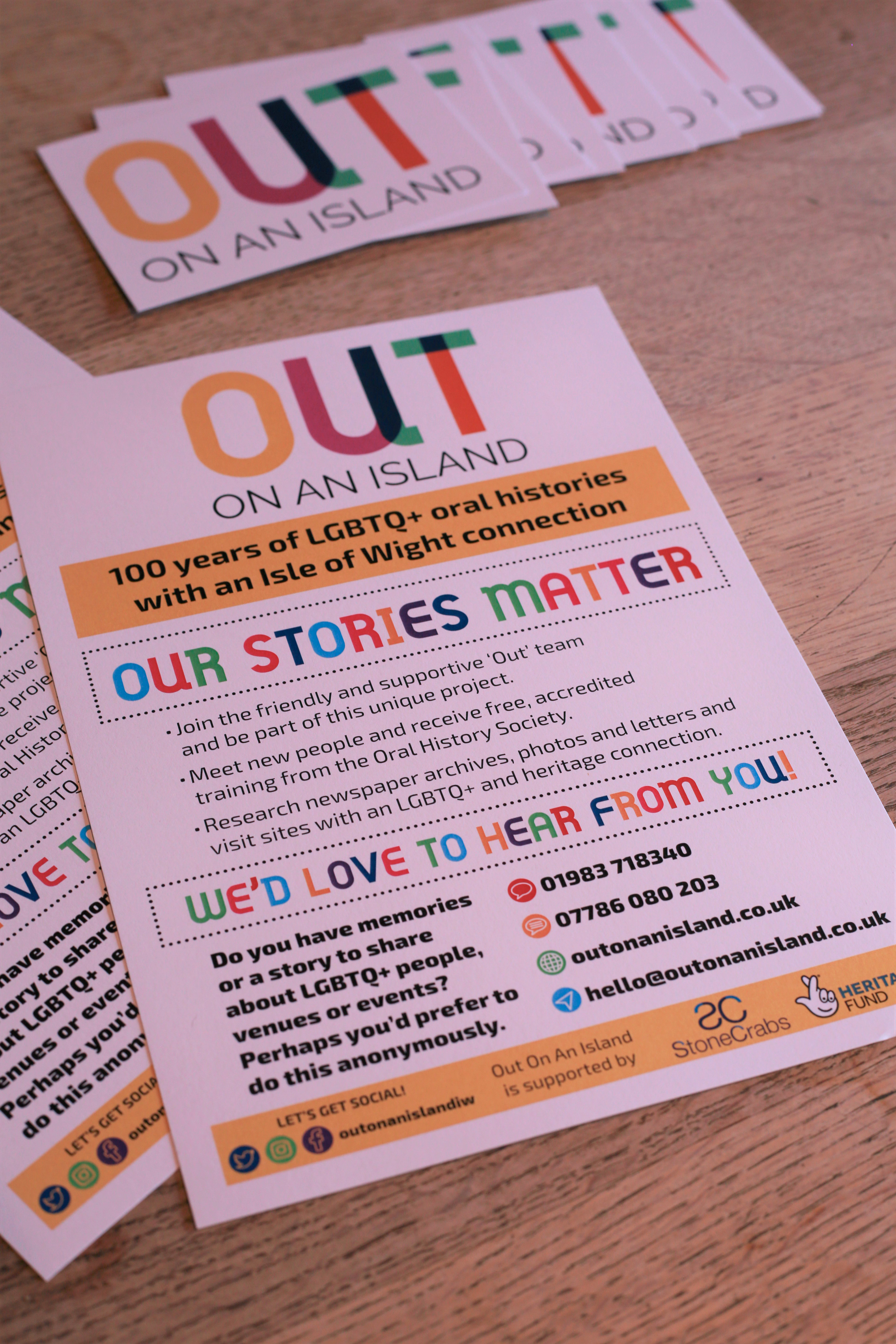
Unearthing hidden stories
This is an eighteen-month community project funded with a grant from the Heritage Fund. The project will be led by Project Manager Caroline Diamond and Artistic Director Franko Figueiredo and will focus on the untold and often hidden heritage of the Isle of Wight LGBTQ+ community, working with people of all ages to highlight a section of history, largely ignored and often erased, particularly in rural communities.
Volunteering opportunities
The team of volunteers will receive training and support for various roles with opportunities to:
- learn how to interview individuals and record sensitive stories with objectivity and understanding with accredited training from the Oral Histories Society;
- research records and stories and source archives such as letters and photographs held by individuals or in the Island’s libraries, museums and the County Records Office;
- to document more recent LGBTQ+ news stories and public events;
- Engage with the wider community with specialist talks, workshops and learning sessions aimed at highlighting the lives and experiences of Isle of Wight LGBTQ+ people and its impact on local and national landmark events.
Want to get involved?
Email us on outonanisland@stonecrabs.co.uk
Highlighting the value of LGBTQ+ Heritage
This is the first time an LGBTQ+ heritage project has focussed solely on the Isle of Wight. ‘Out On An Island’ aims to break down stereotypes, overcoming confusion and negativity inviting honest and open discussion about issues such as gender stereotyping, the history of Pride and the value of education around LGBTQ+ in schools.
Caroline Diamond explains ‘Isle of Wight and Uk Pride in 2017-18 have brought the Isle of Wight LGBTQ+ community into the public eye locally. This isn’t a ‘new’ community and we are excited to have the opportunity to highlight and learn from the unspoken LGBTQ+ stories from the past. We are grateful to the National Lottery Heritage Fund team who visited the East Cowes Classic Boat Museum in February 2018 to highlight the value of LGBTQ+ Heritage. We hope to encourage the sharing of stories and we have no preconceived ideas of what to expect.”
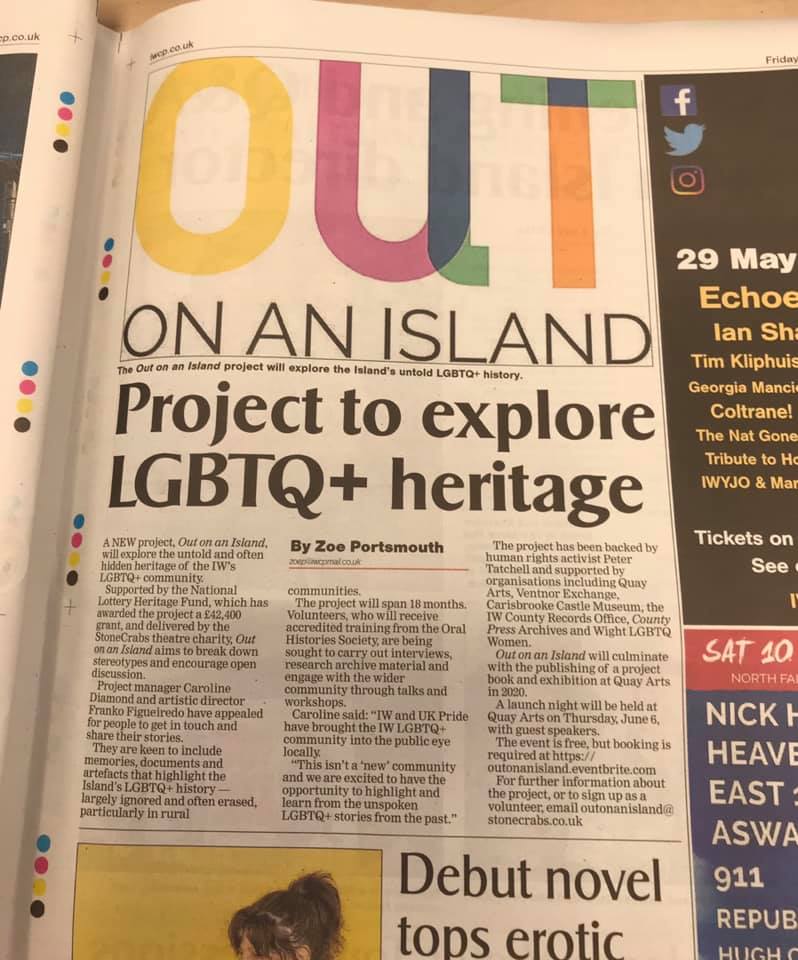
An inclusive home for all its visitors and inhabitants
Franko Figueiredo says “The time of full equality is not quite with us yet, we still feel oppressed by the legacy of the hetero-normative history and many of us don’t always feel safe or comfortable in public places: there is still a lot of misunderstanding and bigotry against the LGBTQ + community that we need to overcome. Caroline and I have been meeting since the Heritage Fund team visited the island early last year and ‘Out On An Island’ came from our discussions on the meaning and importance of cultivating connection and change through our island’s unspoken LGBTQ+ history. ‘Out On An Island’ can show us that the Island can and should be a diverse, inclusive home for all its visitors and inhabitants.”
The project is supported by Human Rights Activist Peter Tatchell who said: “LGBTQ+ History and Pride events have tended to be focused on Britain’s major cities, to the neglect of more out-of-the-way places like the Isle of Wight. But LGBTQ+ people are everywhere, in all parts of the UK. This project aims to shine a light on the Island’s LGBTQ+ community and its long history: to inform, educate and inspire. Bravo!”
Local contributors
Local contributors include Quay Arts, Ventnor Exchange, Carisbrooke Castle Museum, Isle of Wight County Records Office, County Press Archives, Wight LGBTQ Women as well as London based School of Gender Studies at Kings College & UK Pride group.
Tracing LGBTQ lives through historical sources
It is very difficult to trace LGBTQ lives through historical sources. Often there will only be references in court records, reflecting society’s attitude towards homosexuality over time. Lesbian lives are almost invisible in the historical record. Rarely are collections deposited with archive organisations purely because they relate to a known, documented LGBTQ person. This makes uncovering evidence for LGBTQ lives incredibly difficult and often leaves us with negative stories of crime and punishment rather than positive events which would never come to light as part of everyday life. Add to this the fact that homosexuality was illegal until 1967, with earlier punishments ranging from hanging, to the pillory and ‘chemical rehabilitation’ (as in Alan Turing’s case), and it’s easy to understand why members of the LGBTQ community would not always have openly advertised their lives.
key dates in the development of lesbian, gay, bi and trans history
For an overview of key dates in the development of lesbian, gay, bi and trans history in terms of social, political and legislative change, representation and visibility visit HERE
For an interactive timeline to bring LGBTQ history visit HERE
Project Timeline
April – December 2019 – monthly talks and Q&A sessions towards awareness of LGBTQ issues and societal challenges. Community workshops towards providing greater understanding and tolerance of LGBTQ community. Field research & 15 Oral History Interviews which will be recorded and made it accessible to the general public.
January – September 2020 – Heritage visits by project volunteers to LGBTQ archives around the UK. Interviews and Research being prepared for exhibition at Quay Arts, Newport. Monthly learning sessions delivered to various island community groups
Out On An Island will culminate with the publishing of a project book as well as a two-week public exhibition at the Clayden Gallery in Quay Arts Centre, Newport in 2020, which will include oral histories on live playback, community and artists’ responses, specialist talks and community workshops, performance art and a brand new play.

